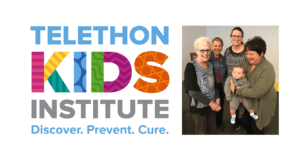We're here for you.
Join the MDS Registry
The MECP2 Duplication Foundation has partnered on an Institutional Review Board (IRB) approved patient database in partnership with a research team led by Dr. Huda Zoghbi and the Baylor College of Medicine. We are looking forward to helping create a complete picture of the syndrome, its symptoms, and the individuals it affects. The study will help build a database of information that will help researchers working towards a treatment.
We encourage all families to participate in the registry database by using the link below. Once you are on the registry page, you will need to read through the introduction and consent to take part in the study. This is an IRB approved study that is HIPPA compliant, so you can be sure your information is safe.
Benefits of Joining
Join the Telethon Kids Institute MDS Database
 The MECP2 Duplication Foundation also encourages all families to participate in the Telethon Kids Institute MDS Database to help broaden the overall understanding of the syndrome.
The MECP2 Duplication Foundation also encourages all families to participate in the Telethon Kids Institute MDS Database to help broaden the overall understanding of the syndrome.
In April 2020, the Telethon Kids Institute in Western Australia launched the international MECP2 Duplication Database (MDBase) as part of their MECP2 duplication syndrome research. The team is looking for families from all around the world to register in the MDBase and participate in their online questionnaire to collect health-related information on this disorder. This information will be used to better characterise this disorder, understand the developmental trajectory and represent the various health problems in this disorder observed by parents that have never been published before in the literature.
